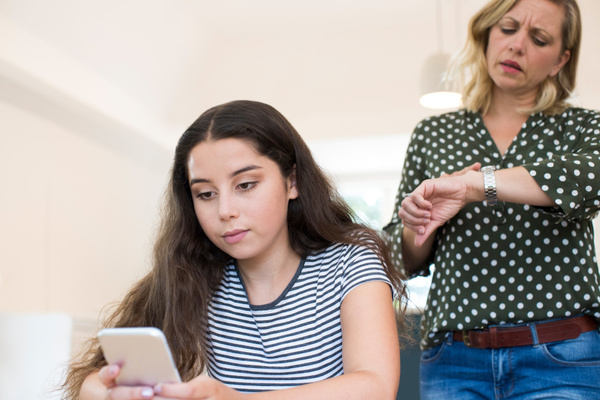Overview: Should parents check their child’s phone? While privacy needs to be a consideration, it should be balanced against safety. Kids should understand the difference between monitoring and spying and that you are responsible for their safety. Clear family policies and honest discussion of why monitoring is happening will be key.
Monitoring vs. Spying
The key difference between “monitoring” and “spying” is that you know the former is happening. If your workplace tracks your activity online, you’ll generally be informed about it, perhaps even what programs are used and what activity will trip the blocker. You know what the rules are and why they’re in place.
The same needs to be true between you and your kids. Parental control software offers some powerful monitoring methods, but if they’re not paired with open discussion of concerns and approaches, then they’re likely to be less effective. Kids tend to follow rules best when the reasoning behind them is clear.
Talking to Your Kids is Critical
Before flipping on any software, you should sit down with your kids to lay out what you’re concerned with and why and when you might monitor text messages or other content. To start with, make it clear what you’re concerned about and why. Lay out clear rules as to when you’ll check and why you might check. They should also know that if you see something concerning that involves a friend, you may speak to the friends’ parents.
Older kids might reasonably raise the question of an expectation of privacy. After all, you likely don’t just riffle through their dresser or look in potentially private places, and phones can be a similar emotional space. This is a good point to discuss expectations and boundaries. Lay out what might make you breach privacy that you’d normally respect, such as changes in behavior that point towards some area of concern or changes in communication.
Privacy can be a tricky issue, and kids do need some degree of personal space. That might include discussing topics with friends you may not be comfortable having them discuss because they need the voice of their peers. Make it clear, though, that you love them and are responsible for them and draw some specific, age-appropriate boundaries.
Be sure to regularly remind them that you monitor text messages, so they don’t forget. And set specific punishments for tampering with parental control software.

If You See Something, Say Something … But Also Listen
If something sets off your alarm bells, it’s important to act calmly and be clear about what’s happening.
First, check the context of the message. A phrase like “maybe I’ll kill myself” can, in person, clearly be meant sarcastically, made clear through body language, facial expression, and tone of voice, but these identifiers are stripped in text communication.
Next, sit your child down and discuss what you saw. Express your concerns clearly, and give them space to discuss how they feel.
This might be a moment where kids are extremely upset. Either they’ve forgotten about the monitoring or hoped you wouldn’t notice. It’s better to let them be angry and then work on the issue later, if necessary.
Let Screen Time Help
Parental control software like Screen Time can help you keep kids safe online and on their phones. To learn more about how it works, try it for free!


Join the conversation